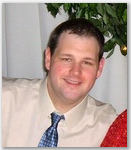Arsis and Thesis Handout for My High Schoolers
-
It is late, I am fasting, and we had a rough Ash Wednesday sung Mass this evening. I am preparing lesson plans for tomorrows Sacred Music class, which I did not have time for previously. So this is the hand out my students will get tomorrow, since I found the Solesmes language too soupy for high schoolers to handle. It is very basic, and all that I will have time for tomorrow since we have a big vespers service on Friday to practice for.
I actually plan on taking a ball to class tomorrow. When you see the attachment you'll understand. Live demonstration and all. I hope I am not ruining the children. But maybe this will help someone else here explain a difficult concept to non-musicians.
 arsis explained.pdf255K
arsis explained.pdf255K -
Do allow me to offer you every encouragement in all of your undertakings, I will pray for your continued perseverance.
The ancient Greeks used the imagery of waves on the ocean, but that is a little difficult to simulate in a classroom. The ball bouncing provides something tactile and tangible that should hopefully aid in comprehension. -
This is great! I never thought of AT as ball bouncing. (I usually tell the chanters think of it as ocean wave or draw number 8 side ways. This is much more fun, especially for kids. ) I think kids will love it. In teaching I find sometimes this kind of impromtu kicks off. Thanks for sharing. (Just be careful if you are planning to let kids demonstrate or experimenting it. Especially boys, you know they can become rather goofy.)
-
This will definitely get them thinking! Congratulations.
-
Well, I am happy to report that my students ate it up. They were all talking about it, and the concept was easily grasped. I also have a method of teaching neumes that I call the "Neume Song", which I should record for everyone. Essentially we sing the names of the neumes in rhythm and with their functioned attached. It is a lot of fun.
The boys did get a bit goofy but thats ok. They all understood the concept, which is what is important. We passed the ball around and when we threw without bounce we said "Arsis!" and then when it bounced we said "Thesis!" So it eventually becomes "Arsis! Thesis! Thesis! Arsis! Thesis! Thesis! Thesis! Arsis!" and so on... -
Neume Song! Can't wait!
-
I will exchange my Harmonic Species page for your Neume Song!
-
I don't know what a Harmonic Species is..but I will gladly record the Neume Song in audio format next week and post it here on the forums.
-
Ossian, congratulations! I love this. I will use it with my *adults*, who also need the help. It is an excellent image.
-
Also eagerly looking forward to hearing (and maybe seeing, hint hint) the Neume Song.
BTW, who should be the second Patron Saint of Chant?
Why, St. John Neume-mann, of course . . .
Welcome to the MusicaSacra Forum!
To participate in the discussions on Catholic church music, sign in or register as a forum member, The forum is a project of the Church Music Association of America.
Categories
- All Discussions21,281
- General Music Discussion8,297
- Job Openings216
- Management of Music Programs852
- Choral Matters534
- Church Documents and Rubrics528
- CMAA Notes304
- Events730
- For Newcomers: Read First26
- Sacred Polyphony550
- Hymnody875
- Gregorian Chant: General2,711
- ↳ Graduale Romanum and Liber Usualis370
- ↳ Graduale Simplex60
- ↳ Semiology63
- Vernacular Plainsong698
- Anglican Use and Anglican Chant68
- Organ, Other Instruments and Repertoire438
- New Composition/Works in Progress1,302
- Recordings234
- Music for Hispanic Ministry162
- Music Education: Children213
- Music Education: General222
- News Items245
- Positions Wanted3
- General Discussion: Catholicism740
- Amusements177
- General Discussion1,037
- Opinions119


